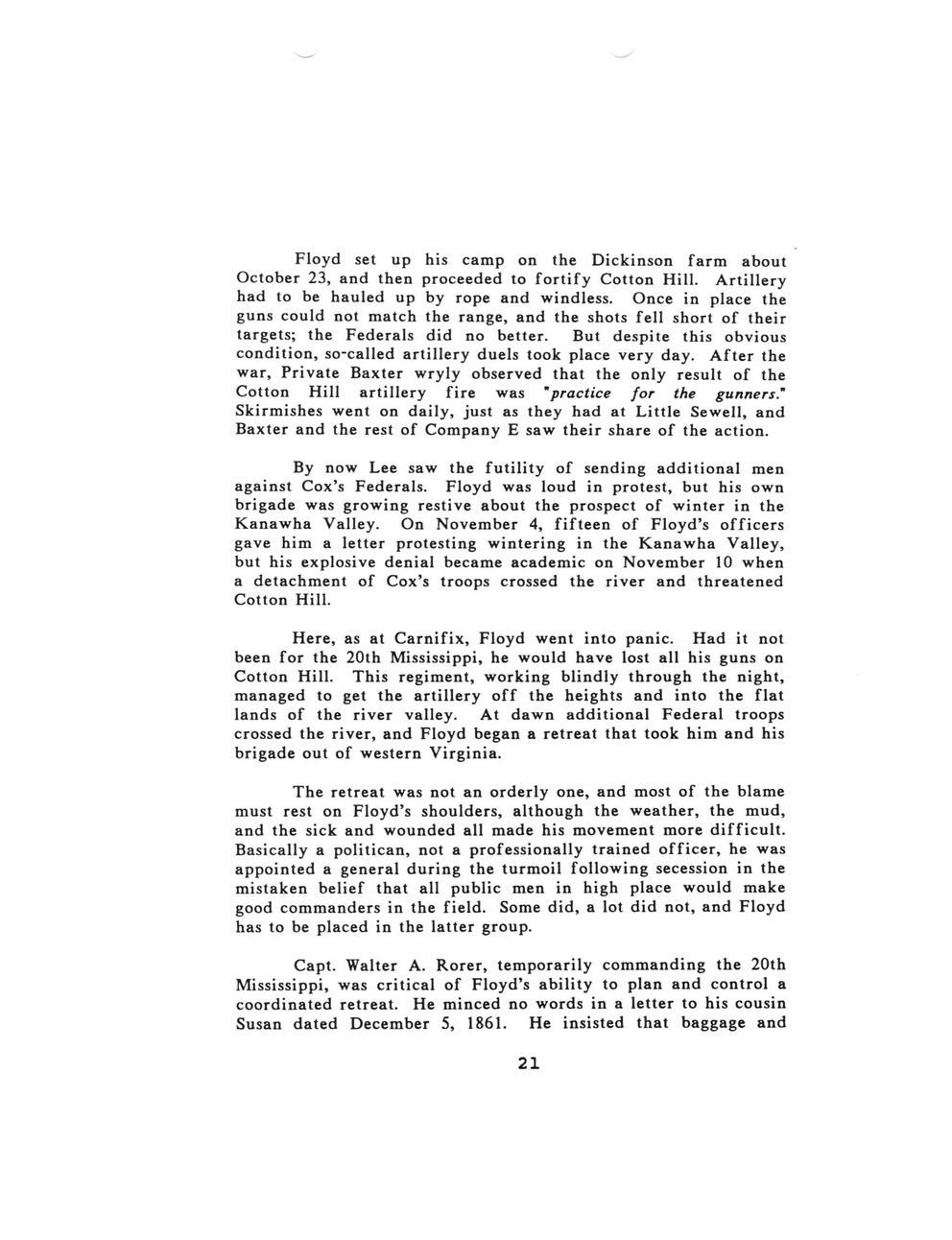This text was obtained via automated optical character recognition.
It has not been edited and may therefore contain several errors.
Floyd set up his camp on the Dickinson farm about October 23, and then proceeded to fortify Cotton Hill. Artillery had to be hauled up by rope and windless. Once in place the guns could not match the range, and the shots fell short of their targets; the Federals did no better. But despite this obvious condition, so-called artillery duels took place very day. After the war, Private Baxter wryly observed that the only result of the Cotton Hill artillery fire was "practice for the gunners' Skirmishes went on daily, just as they had at Little Sewell, and Baxter and the rest of Company E saw their share of the action. By now Lee saw the futility of sending additional men against Cox?s Federals. Floyd was loud in protest, but his own brigade was growing restive about the prospect of winter in the Kanawha Valley. On November 4, fifteen of Floyd?s officers gave him a letter protesting wintering in the Kanawha Valley, but his explosive denial became academic on November 10 when a detachment of Cox?s troops crossed the river and threatened Cotton Hill. Here, as at Carnifix, Floyd went into panic. Had it not been for the 20th Mississippi, he would have lost all his guns on Cotton Hill. This regiment, working blindly through the night, managed to get the artillery off the heights and into the flat lands of the river valley. At dawn additional Federal troops crossed the river, and Floyd began a retreat that took him and his brigade out of western Virginia. The retreat was not an orderly one, and most of the blame must rest on Floyd?s shoulders, although the weather, the mud, and the sick and wounded all made his movement more difficult. Basically a politican, not a professionally trained officer, he was appointed a general during the turmoil following secession in the mistaken belief that all public men in high place would make good commanders in the field. Some did, a lot did not, and Floyd has to be placed in the latter group. Capt. Walter A. Rorer, temporarily commanding the 20th Mississippi, was critical of Floyd?s ability to plan and control a coordinated retreat. He minced no words in a letter to his cousin Susan dated December 5, 1861. He insisted that baggage and 21

Baxter, Marion Francis Marion-Francis-Baxter-Bio.-021